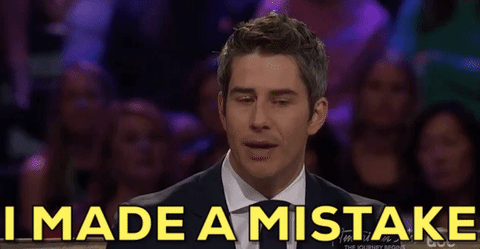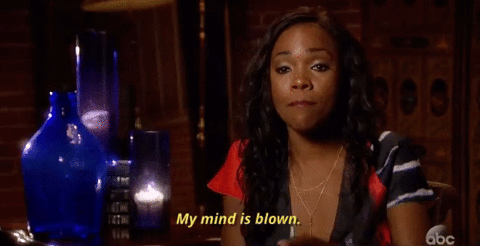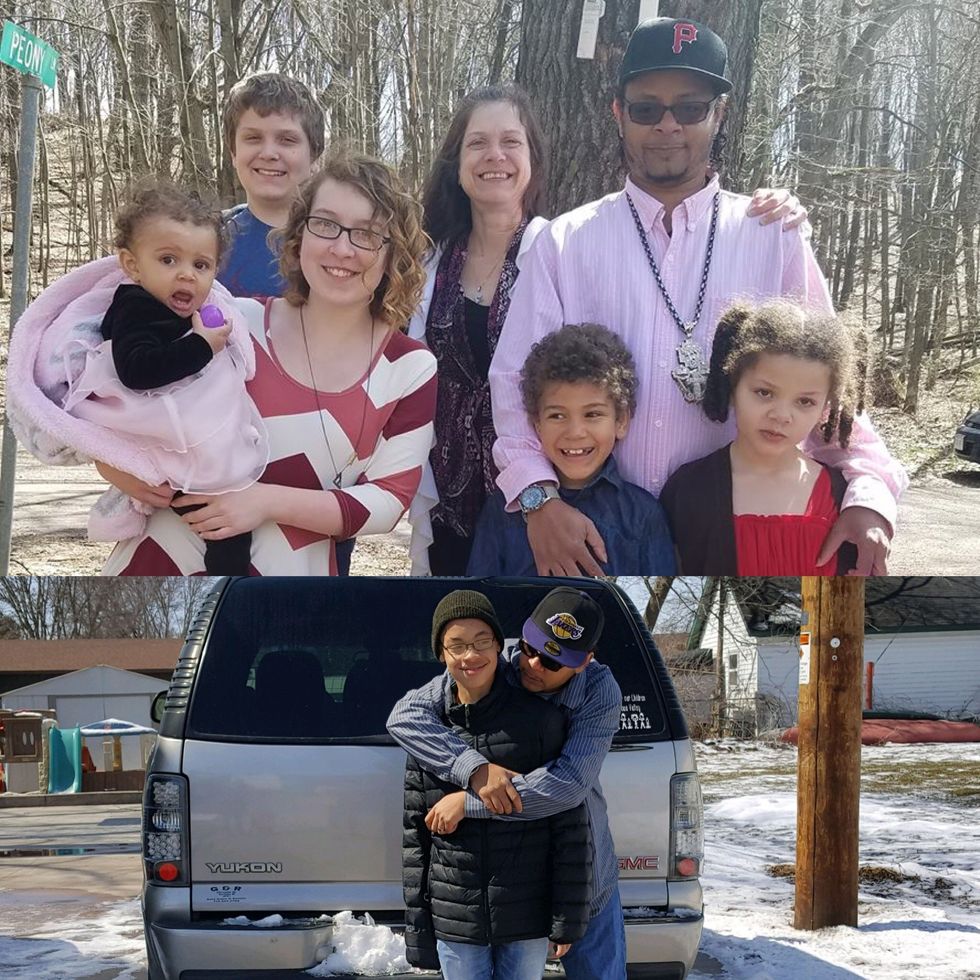10 Motivational Speeches That Will Get You High On Life
Live life and the rest will follow.
Speeches are the mind maps of mankind. Some of the best thoughts of a generation can be traced to the carefully chosen words of artists, politicians, teachers, and others who have become life's coaches. Finding the words to say sometimes requires listening first and talking last. Here are ten speeches that will give you motivation in your life.
1. Knute Rockne and Lou Holtz of Notre Dame - "Win One For The Gipper" and "Respect."

George Gipp was a star footballer for Notre Dame's then coach, Knute Rockne during the 1920s. It is believed that when Gipp was growing ill and closer to death, he asked Rockne to tell the team, when things were not going well, to "win one for the Gipper." Warner Bros. made a movie about the all-American and his dying wish in 1940. On a similar note and later in the 1980s, coach Lou Holtz talks about respect in his short but important speech. Holtz said the following:
"Thing to do isn't to punch them, isn't to talk to them. There's only one way you get respect is by looking somebody in the eye for sixty minutes, go out there, hitch up your trousers and say, 'Hey baby, here I am now. Let me see you run through me now! Let me see you show me some disrespect while nose on my nose. Let me see what you think of me now that my face is to you. You talk about respect. We're talking about respect around the country. There's one thing that we want more than anything else, and that's respect."
Knowing what is right by you and making sure people do what is right by you and vice versa is called respect.
2. President Franklin D. Roosevelt - Inauguration Speech (1933).

"The only thing we have to fear is fear itself. Nameless, unreasoning, unjustified terror." The time of the Great Depression turned people into aimless and desperate clones. Franklin Delano Roosevelt believed in the United States citizens revival and creative effort when the country needed it the most. His speech returned social values to the American people when the economy and the industrial world went bankrupt and corrupt. His words were not just made of candid conversation but were the catalyst for action, change, and national recovery. Roosevelt's call for interdependence was void of greed and filled with sacrificial giving, for the good of all Americans and the world over.
3. Lou Gehrig - "Don't Quit" (1939).

"I might've been given a bad break, but I've got an awful lot to live for." Lou Gehrig was a baseball player for the New York Yankees for seventeen years, beginning in 1925. He was known to have one of the longest consecutive game-playing streaks in the sport, having played 2,130 games before being diagnosed with amyotrophic lateral sclerosis (ALS). Leading up to his last game, Gehrig had earned the nickname "Iron Horse" for his consistent in-game appearances despite having such injuries as fractures in his hands and lumbago. He gave his speech on July 4, a day they called Lou Gehrig Appreciation Day. ALS became Lou Gehrig's Disease after his death two years later in 1941. His wife received condolences, including flowers from President Franklin D. Roosevelt and the TV movie, "The Pride of the Yankees" was made in his honor. Even in the bad times, Gehrig devoted himself to kind and humble sportsmanship, limelight or no limelight.
4. Charlie Chaplin - "The Great Dictator" (1940).

The comedic silent film star of the 1920s, Charlie Chaplin was known for his endearing slapstick humor and the sensitive side he brought to every role. In his last starring picture, "The Great Dictator," Chaplin took a satirical position. In this monologue, he is less political and more humanist, which became one of his career's most standout performances. In the film, Chaplin plays a poor Jewish barber and the dictator, both of which resemble each other for good reason. That is to show audiences that race is a superficial, sadistic and unreasoning tactic to assert rule over someone. This and Chaplin's speech are concerned with the human race, all with beating hearts, all with fleeting life, all objectively human. We have the power to create happiness which in turn creates a free and beautiful world. Never let your happiness enslave people.
5. President John F. Kennedy's Inaugural Address (1961).

The stars and stripes were made much brighter with John F. Kennedy's empowering wisdom. His focus on the importance of policy outweighed the subject of the party. Kennedy was a people's president first and a politician arguably not in the slightest. National accountable actions in a, as Kennedy put it, a "world of law" for the liberty and peace of man is a goal we strive for and achieve from one moment to the next so that it is perpetually met.
6. Martin Luther King, Jr. - "I Have A Dream" (1963).

One of the more pressing issues of the 1950s and 1960s was racial segregation and discrimination. Dr. Martin Luther King, Jr. a Baptist minister, lead the American civil rights movement in a direction that everyone could follow. His demonstration and speech on the March on Washington for Jobs and Freedom gave African Americans the reparations needed to live a life no longer as impostors, but as they were, regardless of their race. King taught us freedom and justice go hand in hand, regardless of the color of those hands. Faith and hope, liberty and law, are not racially exclusive, they are inherent human rights.
7. Jimmy Valvano - Espys (1993).

Jimmy Valvano was a prolific basketball coach for many colleges. In 1993, he won the Arthur Ashe Courage Award and gave his Espys speech while battling cancer. He narrowed life down to six moments. The first three were what should do, every day: laugh, think, and cry. The final three were what we should know: where we started, where we are, and where we are going. Valvano believed time should be spent securing the mind, heart, and soul, to dream and wake up to a goal that motivates you enough to put in an effort you are willing to put in for that goal you cradled in your sleep. The motto of the V Foundation for Cancer Research is "Don't give up. Don't ever give up." The only place to go now is up.
8. Baz Luhrmann - "Everybody's Free To Wear Sunscreen" (1997).

Written by Chicago Tribune columnist Mary Schmich, this summertime manifesto is about wearing sunscreen, one of the many metaphors and pieces of advice given in this speech. Simple aphorisms that are ageless inspired a recording of the column by singer Baz Luhrmann after being attributed online to Kurt Vonnegut's M.I.T. commencement address. Do this, avoid that, carry on, and when your limbs give out, look up in defiance and in search of hope. The stars always look back at you.
9. David Foster Wallace - "This Is Water" (2005).

A commencement speech given to the 2005 graduates of Kenyon College by author David Foster Wallace marks the struggles and trepidation that presents itself in life after college or adulthood. What becoming an adult means and how an adult ought to operate is something worth thinking about. Thinking is one thing, but the content of that thinking is another. What Wallace was getting at is the meaning we restrict from our lives by supplying catch-all terms that are not one size fits all. That is, meaning is not limited to one, absolute, universal meaning, at least not all the time. Be open to speculation, but do not let your doubts shadow others from those doubts' benefit. Put yourself not last, not first, and not dead center either. Place yourself around an awareness that allows you to escape your selfish tendencies and preferences.
10. Barack Obama - "Yes We Can" (2008).

The United States' first African American president, Barack Hussein Obama II, gave a victory speech of unwavering service and hope that is the can-do spirit of an inspired and determined people. His message was not to prove that we could make history but that we may have a history worth making. Though the message may not be agreeable, it will not stop us from having that message made clear. To the doubters and dream-killers: yes we can.
Here is an extra boost of motivation from President Theodore Roosevelt, with his "Strong As A Bull Moose" speech.












 Top: Sister, brother, me, mother, stepfather, and brother and sister. Bottom: Brother and stepfather.
Top: Sister, brother, me, mother, stepfather, and brother and sister. Bottom: Brother and stepfather.



















If Someone Checks Your Racism You're Not The Victim Here, So Here Are Some Tips For Not Acting Like It Either
The way you react to being accused of racism can have a bigger affect than the ignorance in the first place, so here's how to respond in those situations.
Psychology Today defines a "Microaggression" as "everyday verbal, nonverbal, and environmental slights, snubs, or insults, whether intentional or unintentional, which communicate hostile, derogatory, or negative messages to target persons based solely upon their marginalized group membership." To put it more plainly, its anything discriminatory that isn't 100% over.
With that in mind, it may seem to some that literally, everything is off limits to joke about nowadays. While the '90s and early 2000s was full of fake acceptance cloaking heavily problematic stereotypes, assumptions, and misconceptions about marginalized groups, it's left us with a heavy "us vs. them" mentality, with "regular people" on one end and "snowflakes" on the other.
"Snowflake" is a relatively new term commonly employed by conservatives to mock the emerging atmosphere of political correctness, "safe spaces" and the uphill battle minorities face in pursuit of equal rights.
The reason for this, among other things, is the fact that the emerging adult community was raised in the above mentioned standards that were upheld in the '90s and early 2000s. Therefore, we're left with people who think they can, and should get away with anything so long as they aren't waving a Nazi flag or sporting white sheets over their heads.
Studies confirm that many people harbor unconscious racial biases, whether or not they would classify as a full-blown racist.The thoroughly depressing reality of that aside, that along with white guilt, or a sense of shame white people may experience considering the demographic's historical treatment of people of color and other minority peoples, can make racial issues exceptionally difficult to talk about.
With lack of communication comes inevitable ignorance of how a comment, action or opinion may be considered offensive to a marginalized person, leaving many social interactions with both parties angry, sad or even fearful from its outcome.
Ignorance is often not the explicit fault of the ignorant person. However, the problem with today's society is not solely ignorance, nor that people are too sensitive all of a sudden.
For the first time in the nation's history, the social climate allows minority people to be emboldened enough to call people out on their racism. This is a massive societal win for many marginalized groups who no longer have to stand in as a token for their demographic so corporations can meet their diversity quota.
Although, it was clearly not something the bulk of the nation was prepared for.
With the mixture of this newfound liberation for minority groups, an ignorance that has spanned centuries and how difficult people find it to communicate about racial issues, we have the perfect storm for someone to go on the defense instead of treating the accusation of racism as a learning experience.
Thankfully, the concepts behind responding in an appropriate way are pretty straight forward.
1. You Are Not The Victim Here.
There are too many people who get accused of saying something offensive, then immediately go on the defensive. This gets everyone absolutely nowhere.
It probably really sucks to feel like someone thinks you're a terrible person, especially when you didn't realize you were in the wrong. Considering America's history with racism, being singled out for contributing to that is going to bring up a lot of feelings. So naturally, people may turn to arguing and making excuses for the terrible thing they did or said.
The pro-level of this reaction is when a person points out something ignorant or discriminatory, then the accused starts crying.
This immediately takes the attention off of the victim and onto the offender, because the offender then needs to be consoled before any progress in the interaction is made.
Any of these reactions, or feeling that someone is being "mean" to you by checking your ignorance, is a product of white privilege. So, if you care about being a good ally to the marginalized section of our community, its best to save the crying or yelling as a last resort.
2. Apologize First.
Do not pass go, do not collect $200.
Apologizing first, even if you don't understand what you've done, keeps all doors of communication open so you can dig deeper into the situation a little more.
Even if you don't feel remorse—out of ignorance, stubbornness or skepticism—apologizing first acknowledges that they are a human that deserves respect which you've just violated somehow.
Here our pre-school days come in handy, as we can all do well to "treat other's like we want to be treated". Think on how you'd feel if someone disrespected you in the middle of your day, then that empathy should be applied to whomever you've hurt.
If the accused responds in any way besides this, the opportunity for fixing things is annihilated, and the hurt that you both are feeling has no chance of being relieved. Granted, after an apology has been issued and a conversation follows, you might still feel that you're in the right or feel bad in general. However, you still did your best to alleviate some of their discomforts, maintained the cordiality of the relationship and know how to avoid similar situations in the future.
3. Prove To Yourself And Them You're Not A Bad Person
I'm multiracial but look white as hell. I was ignorant as hell as a kid. I've been there where something you said offended when it was clearly not your intention. In fact, in the case of microaggressions, the intent is often not to offend.
So, now it's your job to do your best to prove to them and yourself that you're not a bad person.
The only way to accomplish this is by listening.
Listening to why they were offended, why its a problem and asking questions about the reasons behind it or how to avoid repeating the mistake in the future is the key to growing. And consequentially you might get to learn something that day, which everyone should be thankful for.
Facing these interactions humbly and with an open mind encouraged growth as well as learning, so even though you may feel like crap, this opportunity is definitely a good one.
4. Follow Through
After the badness has happened and been pointed out, an apology has been made and a conversation has been had, the effect of the situation should not end there.
If you're still a little unclear on the offense or want more information, take it upon yourself to watch a Ted Talk or two to keep the conversation going internally.
Then, it's important to actually apply what you've learned to your thoughts, words, and actions. Once it's been pointed out its much easier to identify discriminatory lines of thinking, reconsider previous opinions and even reevaluate how ignorance might be applied to other areas that you hadn't thought of.
If you feel they might still be upset, especially if they're someone you run into often or work with, a check in can go a long way, too. A simple "Hey, I just wanted to make sure you're still OK after the other day" can easy any resentment that might be lingering. Even if that still doesn't fix things, you know you've done everything in your power to make it right.
Even attempting to follow these steps can make all the difference in developing the quality of our interactions a safer society for everyone. Although this may seem like inconsequential in the grander scheme of things, change is truly inspired one baby step at a time, so don't knock it till you try it.